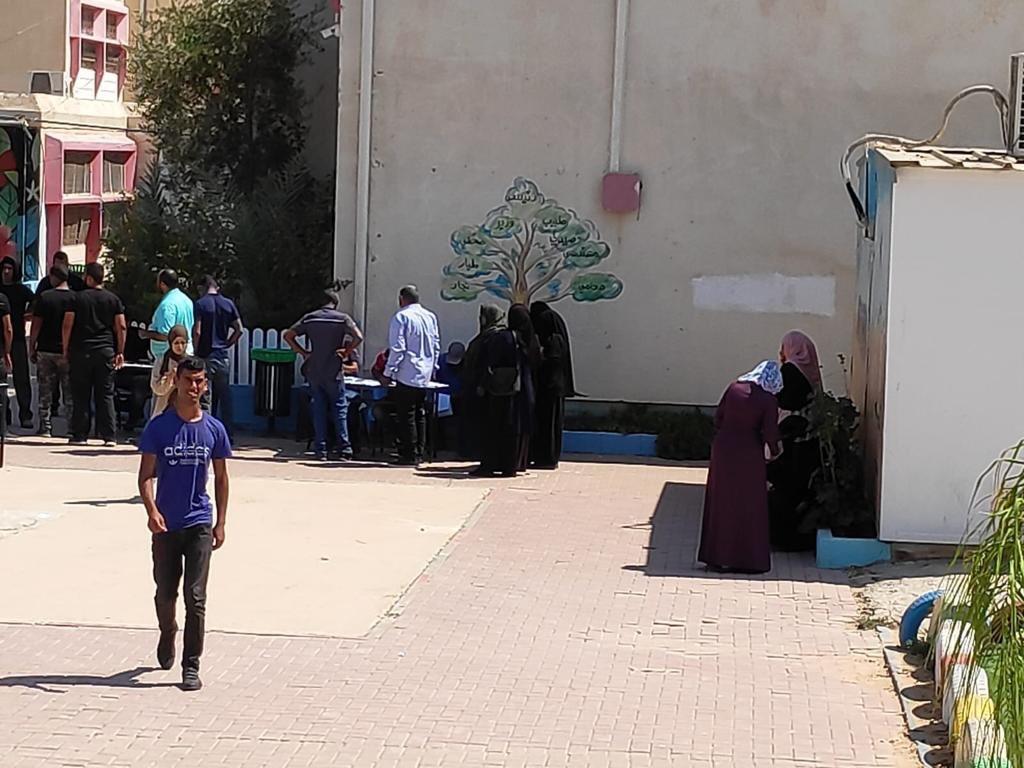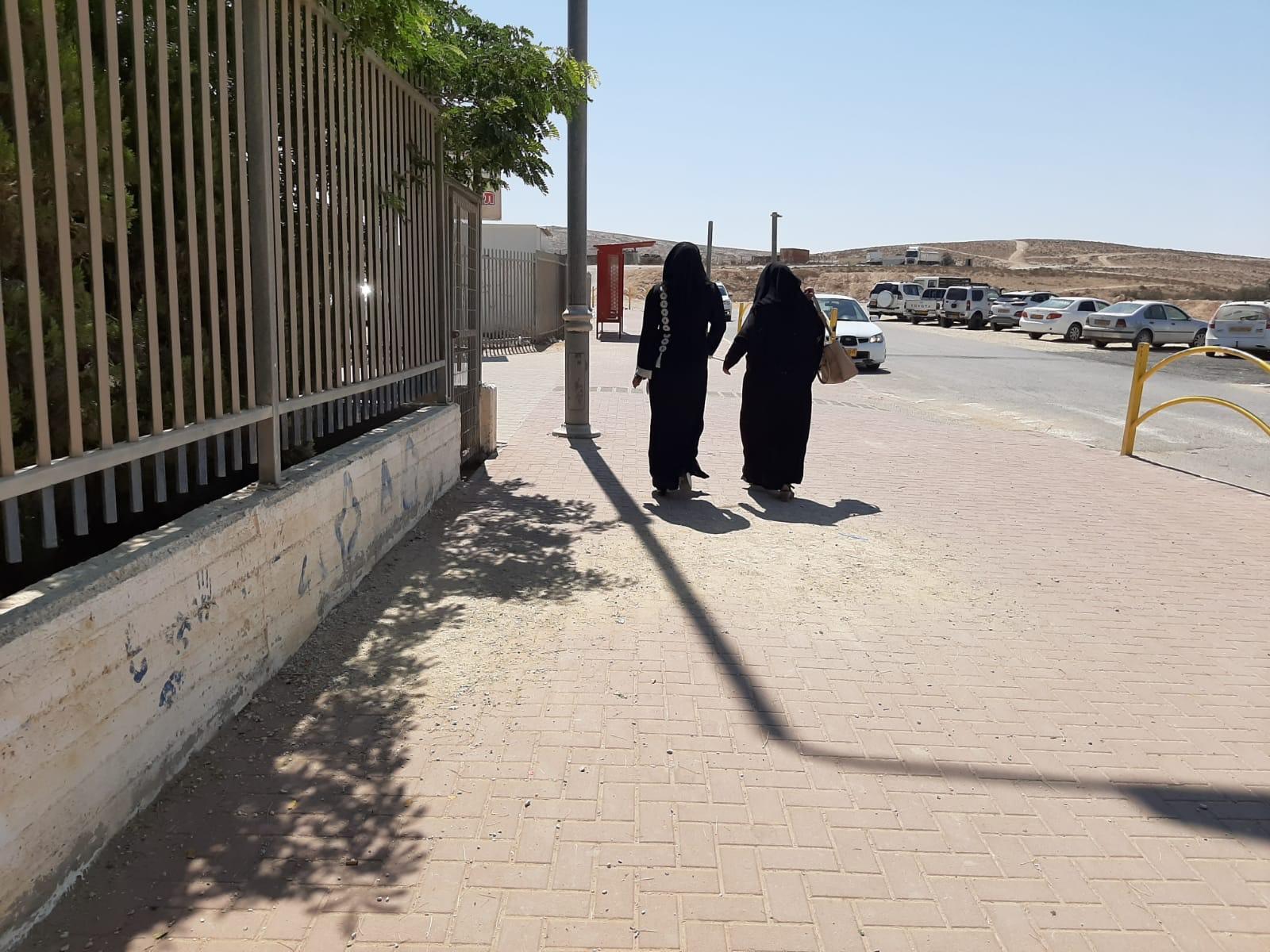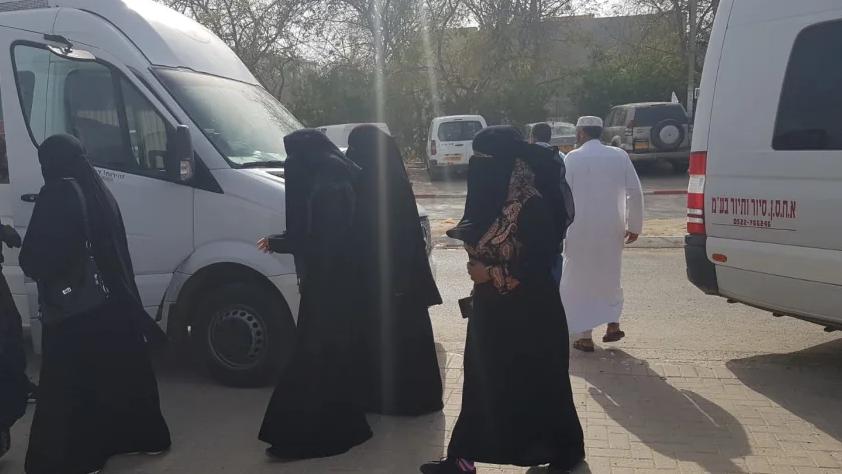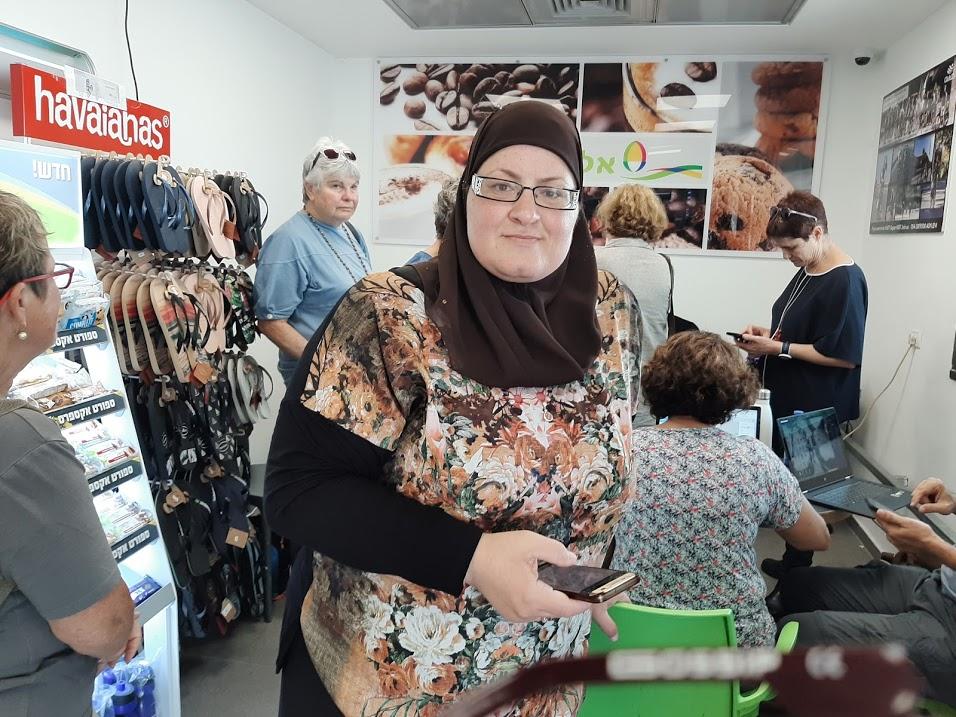Jewish and Arab women unite to defy Bedouin voter suppression in Israeli election
Ghadir Ghadir, a Palestinian feminist activist, helped organize volunteer drivers to get out the Bedouin women’s vote. Many Bedouin women face political, logistical and cultural obstacles that prevent them from voting.
On Israeli election day, scores of women volunteers crisscrossed the dusty roads of Israel’s southern Negev desert, using their own cars and gas, to bring hundreds of Bedouin women from remote villages to their polling stations to vote.
Israel held elections for its parliament, the Knesset, after Prime Minister Benjamin Netanyahu called for snap elections after he failed to form a government following elections in April.
As of Wednesday, Sept. 18, with 90% of votes counted, Netanyahu’s right-wing Likud party came in second with 31 seats, trailing the centerist Blue and White Party. This means Netanyahu could lose his position as prime minister.
Netanyahu and Likud knew that a large Arab turnout could threaten their position in parliament, and so ramped up the anti-Arab sentiment and encouraged Arab voter suppression in his bid to maintain power, drawing on Israeli fears of terrorism and threats to Israeli statehood.
Related:In Israel’s election, the Arab vote could be pivotal
That’s why voting drives to help bus Bedouins to polling stations have been so critical. Zazim, a grassroots organization, planned to coordinate a system to connect Bedouin women with mini busses to the polls this year, much as they did in the April 2019 elections.
Bedouin people are part of Israel’s Arab citizenry, but because their villages are often located on tribal lands that are not included in Israel’s official planning documents, Israel refuses to provide them with paved roads, sewage, running water and electricity, public transportation, schools — and polling stations.
On Sunday, Sept. 15, Central Elections Committee head Justice Hanan Melcer, in response to a petition from Netanyahu’s Likud party — and in rejection of the opinion of Attorney General Avichai Mendelblit — ruled that to get permission to bus voters, groups must first register as an “organization active in the election” with the State Comptroller’s Office.
Related: Anxiety and fear run high as Israel votes
“The situation begins with the absurdity that the state does not provide a solution for thousands of voters and doesn’t provide them with accessible polling stations. … And it ends with the victory of the right-wing, which is trying to suppress the Arab vote.”
“The situation begins with the absurdity that the state does not provide a solution for thousands of voters and doesn’t provide them with accessible polling stations,” said Raluca Ganea, founder and director of Zazim. “It continues as Melcer refuses to believe that this is not a left-right political issue, but a question of democracy. And it ends with the victory of the right-wing, which is trying to suppress the Arab vote. But we are a law-abiding nongovernmental organization, and we have canceled our plans.”
The Central Elections Committee’s ruling may have intended to put an end to the get-out-the-Arab-vote campaign, but it achieved the opposite. Within hours, connected through social media and volunteers email lists, hundreds of volunteers organized and arranged to meet early on election day at a gas station in the Negev.

Grassroots faceoff in the desert
By the time the first dozens of volunteers arrived, the organizers, who insist that they had no official organization behind them this time, began taking action to coordinate and match drivers with Bedouin women voters.
“Send your location on Waze [a navigational app],” requested one organizer, speaking vehemently into her cellphone.
“Oh, they [the women who are being taken to the polls] don’t speak Arabic? We’ll send a driver who speaks Arabic …” said another one on her phone.
She turned to the crowd. “Who here speaks Arabic?!” Three women volunteered, received the location on their smartphones, and set out.
Soon after they began sending out drivers, two men from Im Tirtzu, an extremist right-wing group, showed up at the gas station, wearing go-pros on their heads and armed with megaphones and notebooks.
“We’re here to make sure that these traitorous, extreme leftists don’t disobey the law and aren’t part of that extremist organization, Zazim,” said Yehuda, one of the men, both of whom refused to give their last names.
“Despite the ruling by Justice Melcer, they have come here to break the law to help people vote for the Arab parties and destroy Israel as a Jewish state.”
“We’re filming you,” Yehuda taunted Ghadir, a Palestinian activist from northern Israel.
“You don’t scare me,” she said. “We will do what we must do, like any citizen should, anywhere in the world. I am a private citizen, doing what is right.”
The two groups exchanged heated taunts and barbs. Both groups called the police, who came to the gas station and examined the identification cards of all involved. After several minutes, the police asked everyone to “behave nicely and according to the law,” and left the scene, and so did the men from Im Tirtzu.
And the volunteers persisted, coordinating with local villagers to match drivers with Bedouin women ready to vote.
In the Bedouin town of Kesar-a-Sirat (population approximately 1,600), spread out over poorly paved roads and unpaved paths, Amal, 68, dressed fully in black, with only her eyes showing above her niqab, or face veil, walked jauntily out of the polling station.
She refused a photograph and only and gave her first name and age because — she explained — she did not ask her husband’s permission.
“My husband told me whom to vote for. But when I vote, I don’t have to listen to him. Being in the voting booth is the only other room where I can be alone.”
“My husband told me whom to vote for. But when I vote, I don’t have to listen to him. Being in the voting booth is the only other room where I can be alone,” she said.
Related: For many Israelis, this election is all about Bibi
“Two nice, Jewish women brought me here,” she continued. “I don’t know their names. I live in Abu Tlul [a village about 15 miles away], but this is my polling station. If these nice ladies wouldn’t have picked me up and brought me, I wouldn’t have been able to vote.”
More than half of the approximately 160,000 Bedouins living in the Negev reside in so-called unrecognized villages that range in population size from several hundred to several thousand.
To make matters more complicated, Bedouins are assigned to polling stations according to their specific tribal group, rather than their address.
The Bedouin community is composed of dozens of tribes, scattered throughout the Negev. Thus, Alsanah, a woman from Rahat, a recognized Bedouin city, also has to travel to Kesar-a-Sirat, a distance of almost 30 miles, because most of her tribe lives there.
“This is another way that the state makes their life so difficult,” says Nitza Hevroni, 70, from the central city of Rehovot, who has brought Alsanah from her home to vote.
“Voting is a right, and so accessibility to voting is a right, too,” Hevroni said. “This isn’t an issue of right or left — I did not ask her who she’s voting for. She has the right to vote. That’s what matters. So I’m volunteering to drive. No big deal — I’m in my air-conditioned car. Imagine what her life is like.”

Campaign against the Arab vote
The Arab turn-out may have been a significant factor in helping the center beat incumbent Netanyahu in this tightly-contested election.
Netanyahu and the other right-wing parties used anti-Arab rhetoric in an attempt to both suppress the Arab vote and whip up support among the strident right. As a result, this election campaign has been particularly toxic for the Arab community.
Throughout the campaign, Netanyahu complained about voter fraud in Arab communities in April elections — even though the only fraud found by an official committee favored Likud, Netanyahu’s own party. He planned to deploy over 1,000 activists with hidden cameras to monitor Arab voters in polling stations — as he did in previous elections — because he believed that it would suppress the Arab vote. This, despite the opposition of Israel’s attorney general, who views the cameras as voter intimidation.
While the cameras were voted down in parliament, Likud and right-wing activists announced that they would turn up at Arab voting booths, equipped with cameras.
Netanyahu has gone to great lengths to delegitimize the Arab vote. In 2015, he released a YouTube video late on election day declaring that Arabs were “running to the polls in droves” and that leftist organizations were driving them. The video suppressed the Arab vote by sowing fear, alienation and chaos and energized Netanyahu’s most right-wing flank.
Throughout the most recent campaign, he has regularly “warned” against an alliance between “extreme hostile Arabs.” Last week, Facebook sanctioned Netanyahu’s official page, after a post called on voters to oppose a government composed of “Arabs who want to destroy us all — women, children and men.” Netanyahu denied the post and removed it, saying it was a staffer’s mistake.
Haaretz reported that on Monday, more than 24 hours before exit poll results were announced, Netanyahu had already prepared a recorded message to be sent out on election day to hundreds of thousands of voters’ phones, warning them of very high voter turnout among Arab communities and in “left-wing strongholds.”
This is in direct contradiction with Israeli law, which prevents politicians from issuing electioneering statements on days before elections. Exposed by the press, the statement was not released.
But the delegitimization campaign seemed to have had an effect, at least within the Arab community, where polls were predicting a low voter turnout within the Arab community.

Record Arab voter turnout
Emerging election results show that voter turnout in Arab communities rose to 60% in this election, compared with 50% in the April elections, and that the Joint Arab List, a bloc of Arab parties, is now the third-largest party in the Knesset.
Grassroots organizing between Jewish and Arab women likely had something to do with it.
“I don’t want to romanticize women’s political activity. … But women identify with other women, with not being able to vote. And we recognize the day-to-day difficulties, like lack of access or freedom of mobility. And maybe there is something very real about our thinking — this is just the right thing to do.”
“I don’t want to romanticize women’s political activity,” said Hevroni, the driver from central Israel. “But women identify with other women, with not being able to vote. And we recognize the day-to-day difficulties, like lack of access or freedom of mobility. And maybe there is something very real about our thinking — this is just the right thing to do.”
Details from specific polling stations will not be available for at least a week, but activist Ghadir said she is “convinced that more Bedouin women voted than ever before. The Jewish volunteers gave us hope, and showed us that the only way to bring change for the better for everyone is for Jews and Arabs, and especially Jewish and Arab women, to work together.”
The story you just read is accessible and free to all because thousands of listeners and readers contribute to our nonprofit newsroom. We go deep to bring you the human-centered international reporting that you know you can trust. To do this work and to do it well, we rely on the support of our listeners. If you appreciated our coverage this year, if there was a story that made you pause or a song that moved you, would you consider making a gift to sustain our work through 2024 and beyond?
